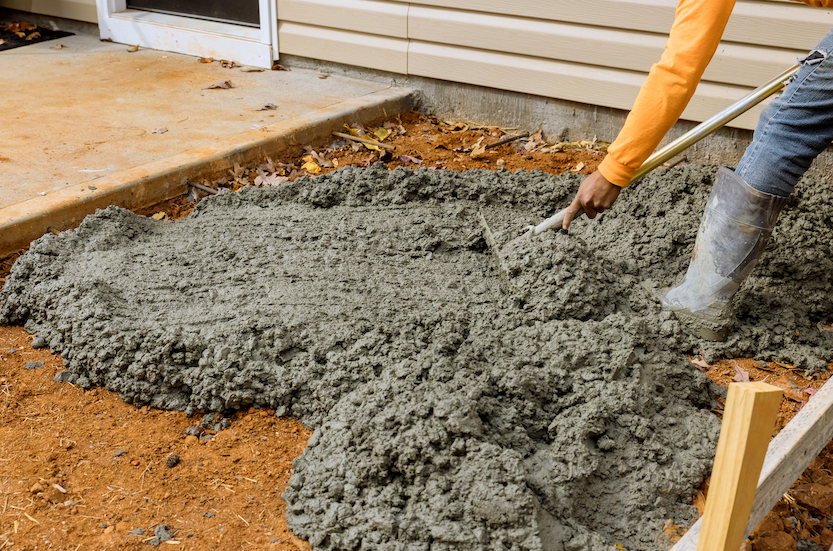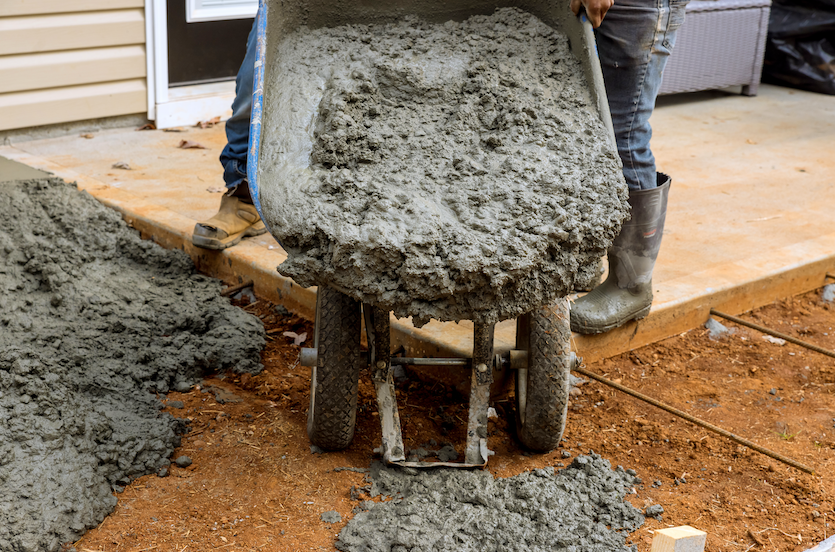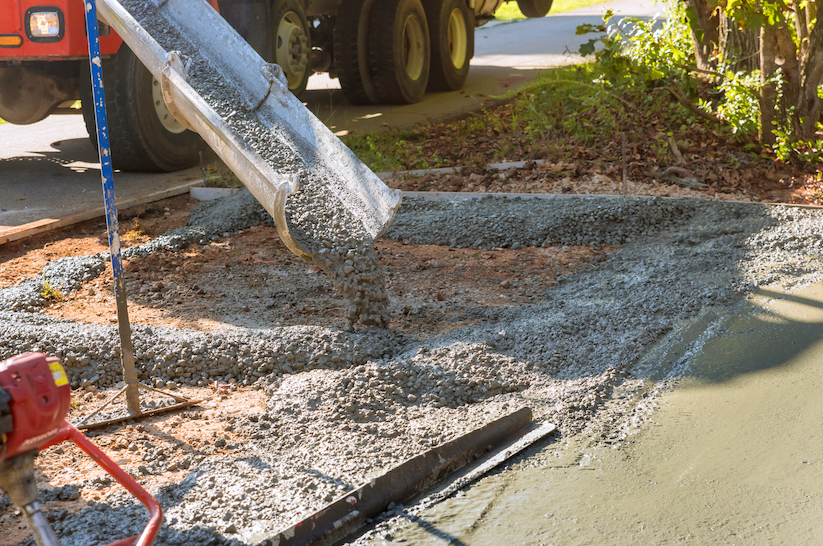When you’re building commercial projects, time is money. Every day your site sits idle costs cash. That’s why smart builders choose ready mix concrete for their commercial work. It gets the job done faster, cheaper, and with better results than mixing on site.
What Is Ready Mix Concrete?
Ready mix concrete comes pre-mixed from a plant and arrives at your site in a truck. The concrete is already the right strength and consistency. You just pour it where you need it. No mixing equipment cluttering up your site. No workers standing around mixing batches. No worrying about getting the proportions right.
The concrete plant has proper equipment to measure everything exactly. They use computer-controlled systems that get the mix spot on every time. Your concrete arrives consistent from the first load to the last.
Why Commercial Projects Need Speed
Commercial builds work to tight deadlines. You’ve got contractors waiting, equipment hired by the day, and clients expecting results. Delays cost serious money.
With on-site mixing, you’re always fighting time. You need space for cement storage, sand piles, and aggregate heaps. You need mixing equipment and operators. If it rains, materials get soggy. If the mixer breaks down, work stops.
Ready mix cuts through all these problems. The concrete arrives when you need it. No storage headaches. No equipment maintenance. No weather delays affecting your materials.
Consistent Quality Every Time
Quality matters in commercial work. You can’t afford weak concrete that fails later. Building standards are strict, and inspectors check everything carefully.
Ready mix plants test their concrete constantly. They know exactly what strength each load will achieve. Every batch gets lab tested to make sure it meets specifications. You get certificates showing the concrete meets your requirements.
When you mix on site, quality varies. Different workers mix differently. Measuring by shovel isn’t accurate. Weather affects how materials behave. One bad batch can compromise a whole section of your build.
Space Efficiency on Commercial Sites
Commercial sites are usually cramped. Every square metre costs money to hire or buy. Storage takes up valuable space that could be used for actual building work.
On-site mixing needs room for materials, equipment, and working space. That’s space you can’t use for anything else. Ready mix frees up this space for productive work.
The trucks arrive, discharge, and leave. No permanent equipment sitting around. No material piles taking up room. Your site stays organised and efficient.
Labour Cost Savings
Labour is expensive, especially skilled workers who know how to mix concrete properly. Ready mix means you don’t need people dedicated to mixing. They can do productive building work instead.
A typical commercial pour might need three or four workers just for mixing if you do it on site. With ready mix, one person can handle the discharge hose whilst others focus on placing and finishing the concrete.
This efficiency adds up quickly on larger projects. The labour savings often pay for the ready mix service entirely.
Meeting Tight Schedules
Commercial projects have strict timelines. Ready mix helps you stick to schedule in several ways.
First, it’s reliable. The concrete arrives when promised, so your work flows smoothly. No delays waiting for mixing equipment or dealing with material deliveries.
Second, it’s fast. A ready mix truck can discharge several cubic metres in minutes. Compare that to mixing the same amount on site, which takes hours.
Third, it reduces bottlenecks. On-site mixing often holds up other work. Workers wait for concrete, equipment sits idle, and schedules slip. Ready mix keeps everything moving.
Handling Large Volumes
Commercial projects need lots of concrete, often all at once. A typical office building foundation might need 200 cubic metres in a single pour. That’s impossible to mix on site without massive equipment and crews.
Ready mix plants can supply large volumes reliably. They have multiple trucks and can coordinate deliveries to keep concrete flowing steadily. Some plants can produce over 100 cubic metres per hour when needed.
For really big pours, they can supply multiple truck loads in sequence. This keeps the concrete fresh and maintains the continuous pour that structural engineers require.
Specialist Mixes for Commercial Needs
Commercial buildings often need special concrete types. High-strength mixes for tall buildings. Waterproof concrete for basements. Quick-setting mixes for repairs. Self-levelling concrete for floors.
Ready mix plants can produce these specialist mixes accurately. They have the right equipment and expertise. Trying to make specialty concrete on site is risky and often doesn’t work properly.
The plant can also adjust mixes for specific conditions. Hot weather mixes that set slower. Cold weather mixes with accelerators. Pumping mixes that flow through pipes easily.
Reducing Environmental Impact
Commercial builders increasingly care about environmental impact. Ready mix helps in several ways.
Plant production is more efficient than on-site mixing. Less waste, lower emissions per cubic metre produced. The plants can also use recycled materials and industrial by-products that reduce environmental impact.
Fewer deliveries are needed compared to bringing separate materials for on-site mixing. This cuts transport emissions and site traffic.
Many plants now offer low-carbon concrete options for environmentally conscious projects.
Cost Predictability
Commercial projects need accurate cost control. Ready mix gives you fixed, predictable concrete costs. You know exactly what each cubic metre will cost before you order.
On-site mixing has hidden costs. Equipment hire, operator wages, material waste, storage costs, and time delays all add up. These costs are hard to predict accurately.
Ready mix eliminates most variables. You pay a set price per cubic metre delivered. This makes budgeting and cost control much easier.
Quality Assurance Documentation
Commercial projects need proper documentation for building control and insurance purposes. Ready mix suppliers provide detailed delivery tickets showing exactly what was supplied.
These tickets include mix design details, delivery time, and quality test results. This documentation proves the concrete meets specifications and helps with any future warranty or insurance claims.
On-site mixing rarely provides this level of documentation. It’s hard to prove what mix was actually used or when it was placed.
Working with National Mini Mix
For commercial projects, choosing the right concrete supplier matters. You need reliability, quality, and service that matches your professional standards.
Look for suppliers who understand commercial timelines and can deliver when promised. Check they have enough truck capacity for your project size. Make sure they provide proper documentation and quality certificates.
Good suppliers will work with you on timing, coordinate multiple deliveries, and adjust mixes for your specific needs. They become partners in making your project successful.
Making the Smart Choice
Ready mix concrete makes sense for most commercial builds. The combination of speed, quality, and cost-effectiveness is hard to beat. It lets you focus on building rather than mixing, keeps projects on schedule, and delivers consistent results.
The key is planning ahead and working with suppliers who understand commercial construction. With the right approach, ready mix concrete becomes a competitive advantage that helps deliver better projects faster and more profitably.
For commercial builders serious about efficiency and quality, ready mix isn’t just an option – it’s the smart choice that keeps projects moving and clients happy.



